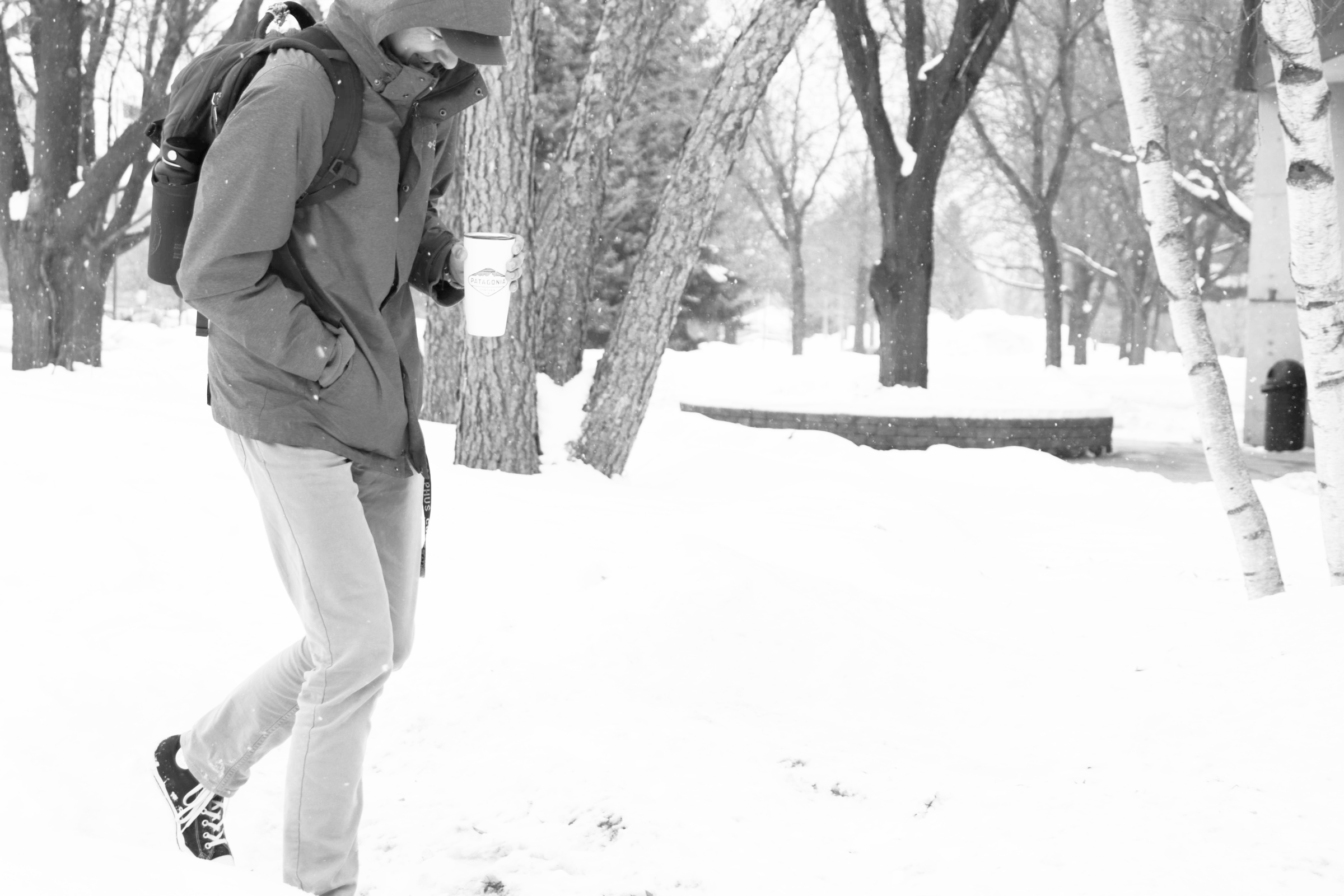Going away to college is hard for any student, but students with disabilities face an even more difficult path. Able bodied people do not need to think about how they will get around campus when they go on a campus tour. When choosing where to live or who to live with, able bodied people don’t need to worry about how they will access their room or getting to class on a daily basis.
As it’s probably clear to most students on campus, Gustavus can be notoriously inaccessible. With so many old buildings, hills, and icy pathways, it can be dangerous even for able bodied individuals to make their way around campus. With the recent snowstorm and slow cleanup, people with mobility issues have an even harder time than usual trying to navigate campus.
While snow is most often effectively cleared from the paths around campus, ice is left almost totally neglected. Even just my short walk from Sorenson to the Campus Center is fraught with ice, and I’ve seen countless people almost slip. Imagine if you already had a hard time taking that route.
Another risky spot on campus is the path down to Rundstrom (which is also very inaccessible). Making your way up or down that hill is dangerous, and I’ve heard stories of people just about falling all the way down the hill. If there are so many dangerous places on campus for people with full mobility, can you imagine what it would be like if you had physical difficulties?
While I understand that the campus has lots of ground to cover when recovering from a weather event, leaving ice to build up is unfair to everyone, and especially to people with mobility issues. Leaving the campus in such a bad state all winter could even possibly rule out the school for people who want to come here but find the situation simply too difficult.
Besides weather related inaccessibility, we also have an abundance of narrow hallways, doorknobs (in contrast to door handles), entire buildings without elevators, and in some buildings, sad excuses for accessible bathrooms.
While there is an Accessibility Office here at Gustavus, I am surprised to find that there is no student organization to support or represent students with any kind of disability, physical or mental.
Having such as organization could benefit not only those students, but all those who support accessibility and ending able-bodied privilege. After visiting organizations at other schools that focus on accessibility, organizations like this did things like approve campus events and events put on by other student organizations as accessible to everyone, hold informational events, and create a space for people with disabilities to find comradery.
Creating an organization like that here at Gustavus would clearly be beneficial and could possibly work in concert with other organizations of that nature to promote intersectionality.
Making Gustavus a place that is more accepting and accommodating of people who need aid in any sort of way could only strengthen the campus’s commitment to diversity and inclusion. Both in public conversation and here on campus, people who are disabled are too often left out of the conversation about making our community more inclusive.
Even if a group wasn’t formed, I believe it would be beneficial to all of us, students, faculty, and administrators alike to educate ourselves on how our practices and institutions uphold able -bodied privilege. This could be done either on our own time or together as a community in the form of informational sessions, consciousness raising sessions, or a campaign by the college to spread awareness and knowledge of how we can all be more inclusive.
By leaving people with disabilities out of the conversation, we are leaving an entire part of our own community out of our thoughts and considerations. The inaccessible nature of our campus clearly shows that we have been keeping the subject out of our thoughts for quite a long time. There is no better time than now to take the steps to make our campus for accessible and inclusive both physically by making plans to modify buildings and residence halls, and by tackling the mental and communal challenge of checking our able bodied privilege, if we possess it and changing our behavior.
